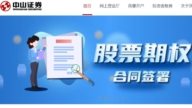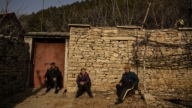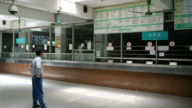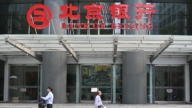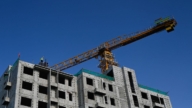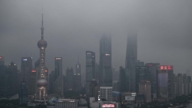【新唐人2014年04月25日訊】中共國務院常務會議日前通過﹕80個基礎設施等示範領域,將開放讓民間資本參與建設營運。而經濟學者、專家則認為,基礎建設是服務大眾的項目,任何國家都是由政府在做,中共在中國經濟衰退的當前,突然開放基礎建設項目讓民間投資,顯示政府沒錢了,或是地方政府債務已經過高,政府不願再揹債。因此專家提醒,在基礎建設已經無利可圖,而民眾的投資卻無法公開透明監督的情況下,民眾要自保,不要上當了。
中共國務院總理李克強,4月23號主持召開國務院常務會議,會中決定﹕讓社會資本,特別是民間投資,進入一些具有自然壟斷性質、或過去以政府資金和國企投資為主導的領域。
會議決定,在鐵路、港口等交通基礎設施,新一代信息基礎設施,重大水電、風電、光伏發電等清潔能源工程,以及油氣管網及儲氣設施、現代煤化工和石化産業基地等方面,首批推出80個示範項目,面向社會公開招標。
而社會大眾資本可以透過合資、獨資、及特許經營等方式,參與建設營運。
另外,國務院下一步將推動油氣勘查、公用事業、水利、機場等領域,擴大向社會資本開放。
這項被當局稱為「落實企業投資自主權」的政策措施,外界卻認為是個圈套,是另一個掠奪民間資本的陷阱。
美國南卡羅萊納大學艾肯商學院教授謝田﹕「這實際上是個陷阱,也是個圈套,因為實際上我們知道現在中國的經濟非常嚴重的衰退,不管是通貨膨漲也好、房地產泡沫也好、股市也好、地方債務問題,都出現非常嚴峻的狀況,中國的國有銀行他們也在大量的鬧錢荒,事實上是國家沒錢了﹗」
美國「南卡羅萊納大學艾肯商學院」教授謝田介紹,正常的國家,基礎建設項目都是由國家、政府投資,因為建設項目是服務於大眾的,並且投資週期長、投資回報率低,所以一般民間沒有人願意做。
而《新唐人》特約經濟評論專家馬傑森也表示,當前中國的經濟發展環境嚴峻,需要基礎建設來刺激經濟發展,但是政府不願再揹債搞建設。
《新唐人》特約經濟評論專家馬傑森﹕「比如說各個地方搞的收費公路,各個地方政府賺的都很厲害,但是再往下發展起來的話就沒有很好的項目,而且地方政府的債務已經很多了,比如說再修的公路都是很邊緣的,車流量各方面都很少,但是為了基礎建設而基礎建設,這樣的項目往往是不想再讓地方政府背這個債了。」
謝田﹕「那中共這時候為甚麼突然開放呢﹖就是因為它這個政府沒錢了,或是地方政府債務過高,它把這種本來無利可圖的東西讓中國老百姓、民間資本參與,這個是非常不負責任,非常惡劣的做法。」
雖然中共國務院的這項所謂「企業投資自主權」的政策措施,是為「促進市場公平競爭、維護市場正常秩序工作」。但謝田提醒,老百姓現在掏出了錢,卻失去了對這筆錢使用的監督,並且無法從中得到太多的好處。
謝田﹕「我們也知道,它這個政府的運作,項目的招標,到項目的實施都沒有一個公開、透明的監督,實際上這些錢進入以後,都被中共的官員給貪污掉了,所以在這個時候他們這樣做的話,實際上是…無疑是另外一種掠奪民間資本的辦法。所以我覺得這是非常惡劣的建議。中國老百姓最好是好好的自保,不要上當。」
馬傑森表示,當局拿老百姓的錢做基礎建設,一方面「省得它地方政府背一屁股債」,同時也避免「把它銀行體系給拖垮」了。
採訪/陳漢 編輯/周平 後製/孫寧
Experts: A Trap For Opening the Infrastructure Investment Market to the Private Sector
In recent days the State Council to the Chinese Communist Party (CCP), issued a new policy: 80 pilot infrastructure projects will be opened to private funds, involving construction and operation. However, economists and experts all agreed, the main purpose of infrastructure, is to serve the public, and in many countries, this has been provided by the government.
Under the situation of China’s economy recession however, abruptly opens up the infrastructure projects to private investors, showing how the government is running out of valuable funds, becoming overburdened by local government debt, and thus a reflection of why main government bodies, are unwilling to increase their debt. Experts remind us, there is no profit investing in the infrastructure of China, and the private investment cannot be openly and transparently monitored. So people need to protect themselves without being fooled.
The CCP’s Premier Li Keqiang, presided over a meeting of State Council on April 23. The meeting determined: allowing social capital, especially private funds, to invest in projects in the areaswhich feature natural monopoly, or previously dominated public funds and state-owned enterprise investment.
The meeting also made a decision to give public bidding for the first batch of 80 pilot projects, among which transport infrastructure, including railway and harbour, new generation information infrastructure, clean energy including major hydroelectric engineering, wind power and photovoltaic power generation, oil and gas pipeline and storage facilities, modern coal chemical industry and petrochemical industry base.
Social private capitals are allowed to get involved in the infrastructure of construction and operation. This can be initiated through joint venture, sole proprietorship, and franchised operations.
In addition, the State Council will further expand other fields, including oil & gas prospecting, public works, irrigation and airport, all open to the social capital.
Such a policy “Implementing enterprise investment autonomous rights,” as such named by the CCP Authorities, is being regarded by experts as a trick and another trap for robbing private funds.
Marketing Professor Frank Xie at University of South Carolina Aiken: “This is actually a trap and a trick. Because actually we know, the current Chinese economy is in a serious recession. Whatever the scenario is, be it inflation, property bubble, security market or local government debt, they are in fact all in a very precarious and dangerous status.
China’s state-owned banks are all short of money. In fact, the nation has no money!”
Professor Frank Xie says, in a normal country, infrastructure projects are invested in by the nation and government. Because these projects are served for the public, investment cycle is long with low returns, private investors are unwilling to invest in such projects.
Special commentator for NTD Jason Ma, says the current Chinese economic status, has hit hard times. It needs infrastructure construction to stimulate economic development and growth, yet governments do not wish to construct infrastructure through borrowing, thus creating more debt.
Jason Ma: “For instance, local governments across China made a lot of money from toll roads. But there seems to be no future projects on the cards. The debts of local government has been very high too. The new highway located in remote areas with low traffic volume. These infrastructure projects, which serve only themselves rather than for any real demand, generate debt but local government will not bear the brunt of such a burden.”
Professor Xie: “So why does the CCP open it (toll road) now? It’s because the government has no money, and also due to the high debts of local governments. It is very irresponsible and wicked of the CCP, to allow Chinese private funds to be involved in such profitless projects.”
The true purpose of the so called “Implementing enterprise investment autonomous right” policy, is to “promote market’s fair competition and maintain normal order of the market”. But Professor Xie reminded us that, it is the ordinary people who paid their money in to invest, but they lost the monitor on the money and are now unable to make on any returns.
Professor Xie: “We all know, the operation, public bidding and project implementation of such governments, have no open and transparent monitor. In fact, such money used for investment is embezzled by the CCP officials. So at such a time they are producing this policy, they are in fact… without doubt, creating a way to loot such funds. I think this is a very wicked policy. Chinese people had better protect themselves without being fooled.”
Jason Ma expresses, the Authorities use Chinese people’s money to invest in infrastructure construction, on the other hand, “avoiding local governments taking on the debts, thus avoiding a total collapse within the entire system.”



